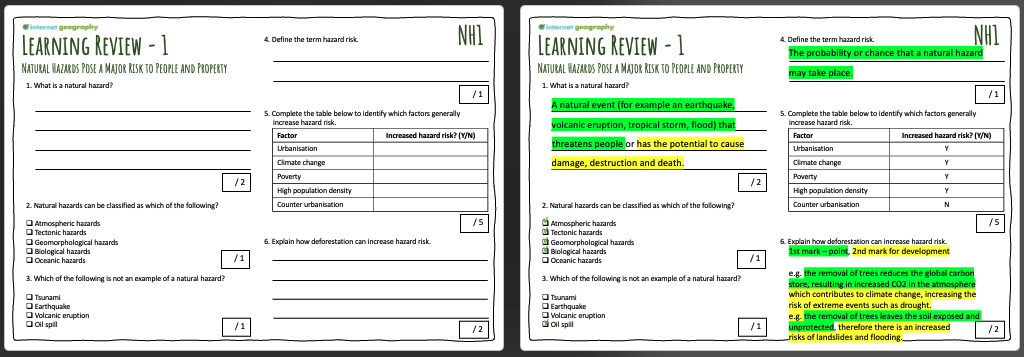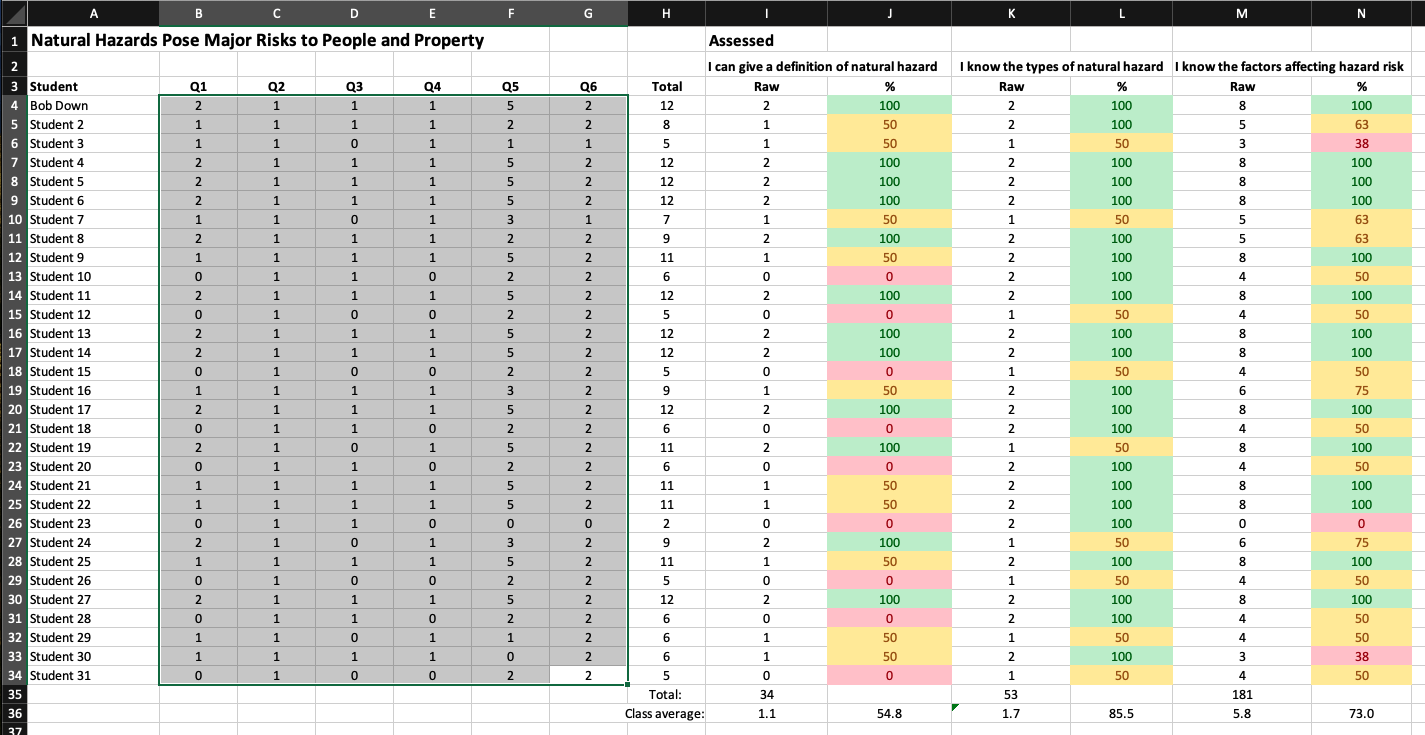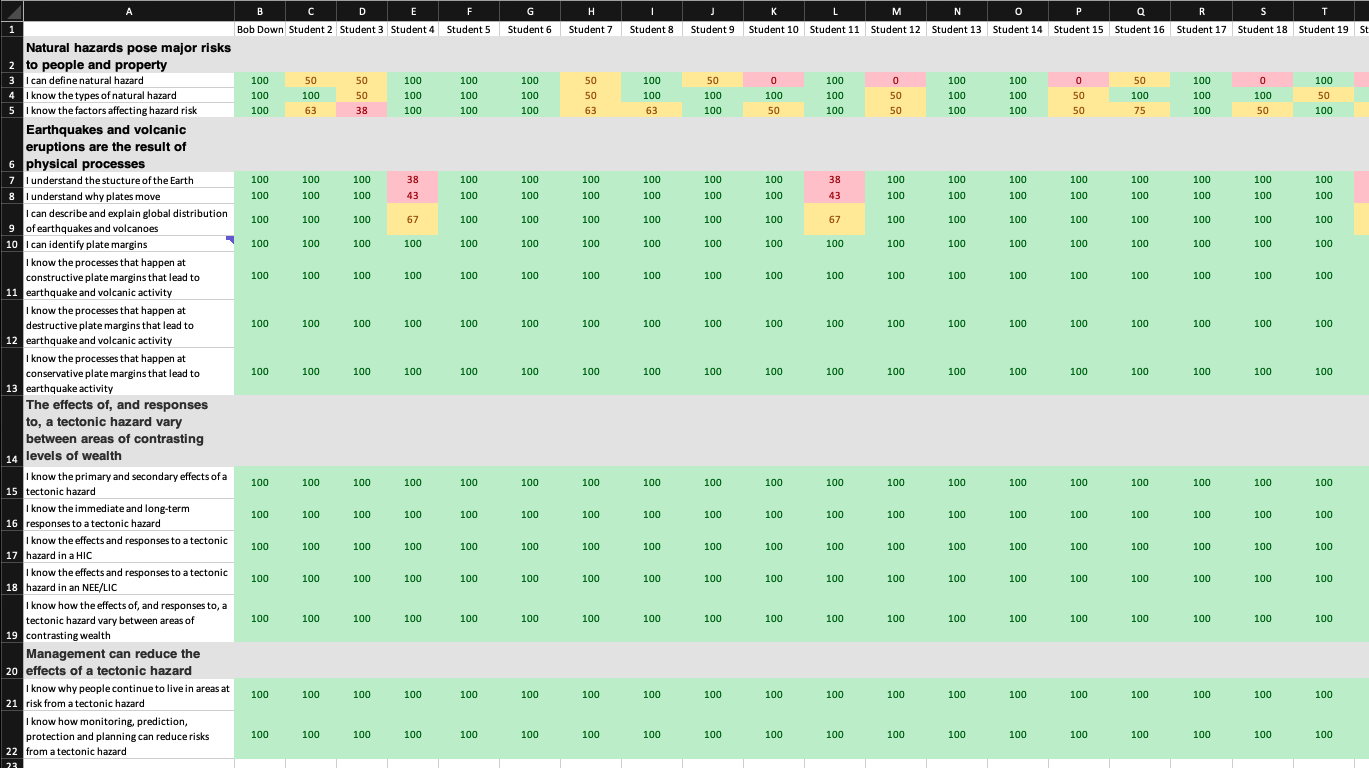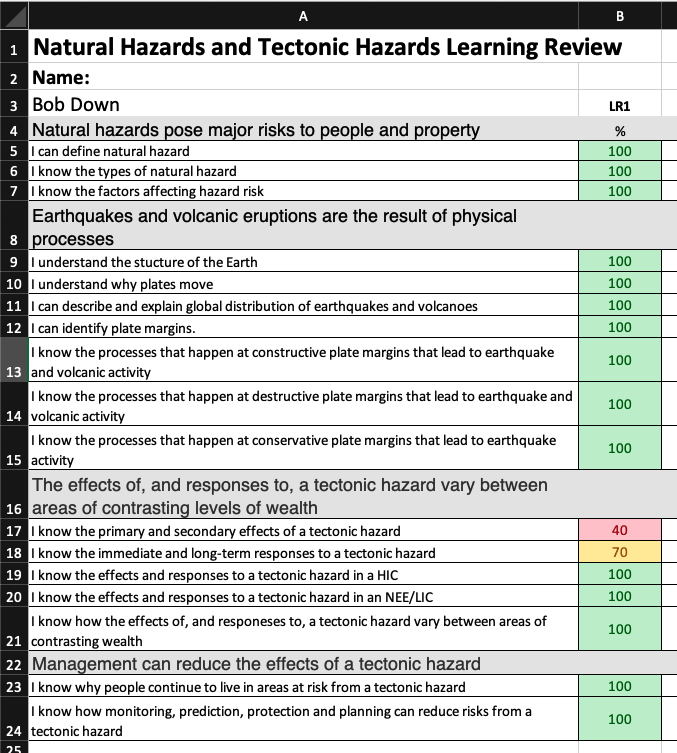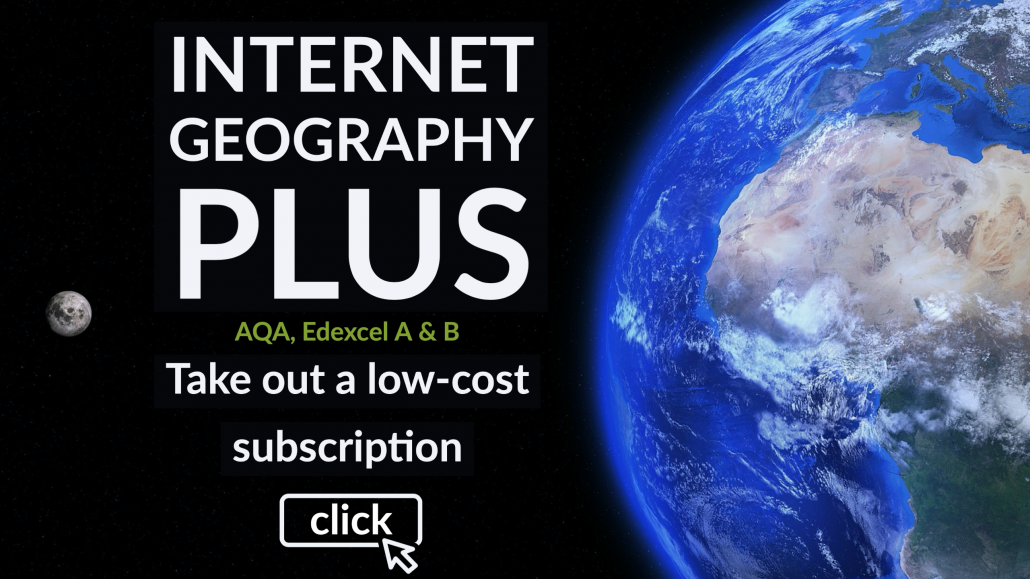In the ever-evolving education landscape, we must adapt and employ innovative tools to support our students effectively. A new resource from Internet Geography will provide a dynamic way to track students’ knowledge and understanding, allowing responsive teaching to address gaps and ensure comprehensive learning.
The new resources will include a series of short assessments or learning reviews designed to gauge students’ grasp of key geographical concepts. These assessments will be structured to align with the AQA GCSE Geography curriculum, ensuring that you can target the most relevant content.
The magic, however, happens after students complete these assessments. Instead of manually grading and analysing each assessment, question-level scores are input into a user-friendly spreadsheet (after the students self-assess using the mark scheme). The spreadsheet automates the process of aggregating and interpreting data. Here’s how it works:
- Class Overview: Teachers can instantly access an overview of the class’s performance, identifying which areas most students excel in and which pose challenges. This panoramic view allows educators to identify patterns and common areas of improvement that need addressing.
- Student Personalised Learning Checklists (PLCs): Each student receives an automatically generated individual PLC based on their assessment results. These PLCs are dynamic and tailored to the student’s strengths and weaknesses. They serve as a roadmap for personalised learning, pinpointing areas where the student excels and areas that require further development.
The benefits of this approach are multifaceted:
- Customised Teaching: Armed with insights from the class overview and student PLCs, teachers can tailor their instruction to target the precise needs of their students. No more one-size-fits-all lessons; education becomes genuinely student-centered.
- Timely Intervention: Teachers can identify knowledge gaps early, allowing timely intervention and preventing students from falling behind. This resource empowers educators to be proactive in addressing challenges as they arise.
- Progress Tracking: With data at their fingertips, teachers can track the progress of individual students over time. This enables them to measure the effectiveness of their teaching strategies and adjust as needed.
- Engagement: Students benefit from personalized learning experiences that cater to their unique needs, leading to increased engagement and motivation in the subject.
- Exam Readiness: By continuously monitoring and adapting to their student’s needs, teachers can ensure that students are well-prepared for the AQA GCSE Geography exam.
We have drafted the first set of these resources, which focus on types of hazards and tectonic hazards from the unit, The Challenge of Natural Hazards. Internet Geography Plus subscribers can download these from the new Learning Review – Knowledge and Understanding Tracking and Intervention page. This is a pilot stage. Before we develop these for the entire course, we seek feedback on the draft resources. Please drop us an email with the feedback you have on the new resources after trying them out with your students.

